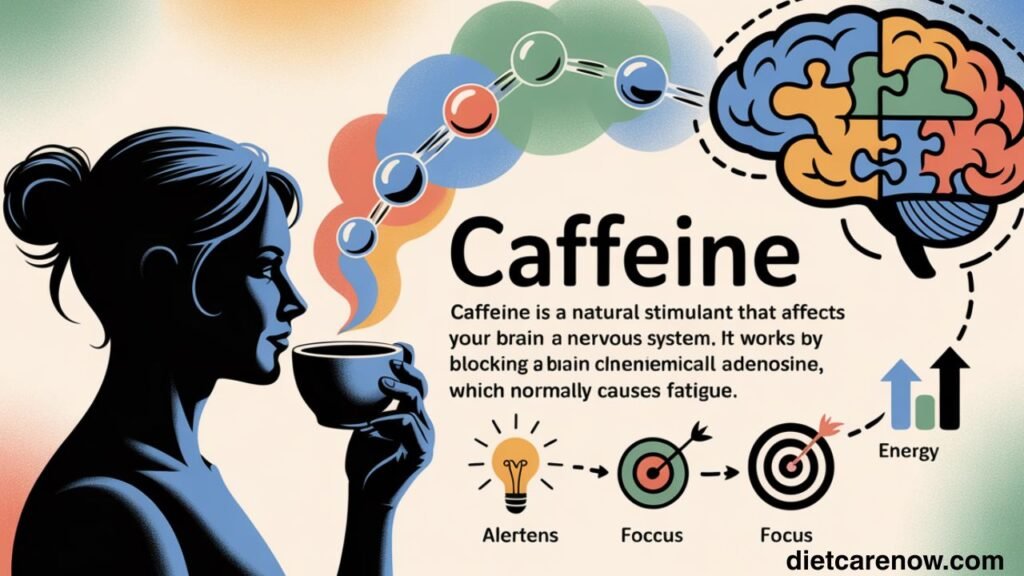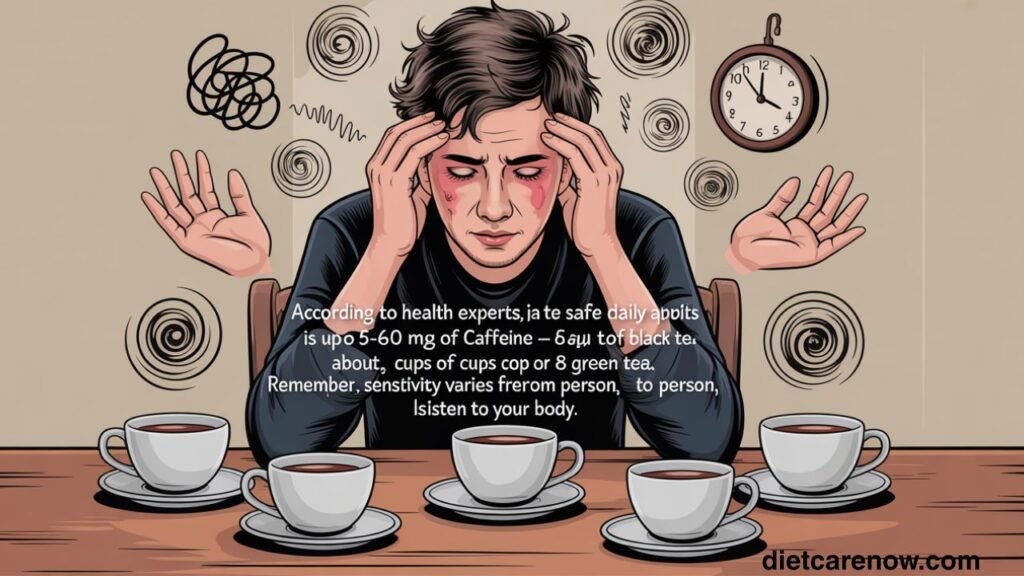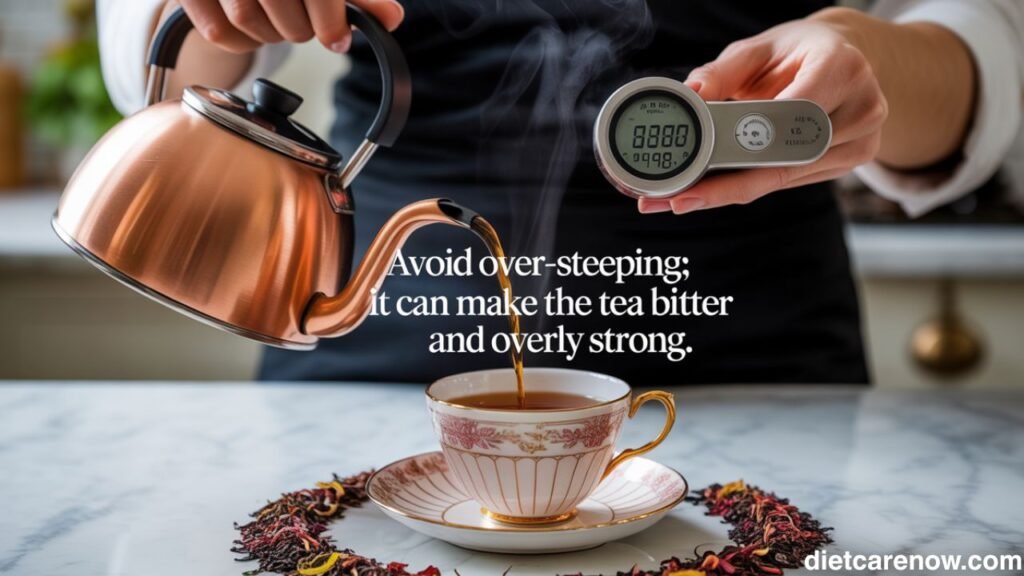If you’re like most people, your day probably doesn’t start until you’ve had that first sip of something warm and energizing. While coffee often takes center stage, caffeinated tea is quietly winning hearts around the world. It offers a smoother boost, a wide range of flavors, and a sense of calm focus that coffee sometimes lacks.
- So what exactly is caffeinated tea?
Simply put, caffeinated tea comes from the Camellia sinensis plant — the same source for black, green, white, and oolong teas. Unlike herbal teas (which are usually caffeine-free), these teas naturally contain caffeine, the compound responsible for increasing alertness and energy. - A quick history: Tea has been consumed for thousands of years, originating in ancient China around 2737 BCE. Caffeine’s stimulating effect was soon noticed by scholars and monks who used tea to stay awake during long study sessions. Over time, tea culture spread to Japan, India, and Europe — evolving into the diverse tea traditions we know today.
- Why do people choose caffeinated tea over coffee?
For many, it’s about balance. Tea provides a gentler lift without the jittery crash often linked to coffee. Plus, it comes with antioxidants, amino acids like L-theanine, and a calming ritual that turns each cup into a mindful moment.
How Caffeine Works in the Body
Caffeine is a natural stimulant that affects your brain and nervous system. It works by blocking a brain chemical called adenosine, which normally causes fatigue.When caffeine steps in, it keeps adenosine from binding to its receptors, allowing dopamine and norepinephrine levels to rise — resulting in increased alertness, focus, and mood.
Absorption and half-life:
Once you sip your tea, caffeine enters your bloodstream within 15–45 minutes. Its effects peak around 60 minutes and can last for up to six hours. The “half-life” of caffeine means how long it takes for half of it to leave your body. This usually takes about 3 to 7 hours, depending on your age, how fast your body works, and how sensitive you are to caffeine.
How tea compares to coffee and energy drinks:
- Tea typically has between 30–70 mg of caffeine per cup.
- Coffee averages 90–120 mg per cup.
- Energy drinks can contain anywhere from 80–200 mg or more.
What makes tea special is L-theanine, an amino acid that moderates caffeine’s stimulating effects. It helps create a state of calm focus — often described as “alert but relaxed.”
Also read: /grain-power/

Types of Caffeinated Teas
All traditional teas come from the same plant, but how the leaves are processed changes the caffeine content and flavor.
- Black Tea:
The most oxidized type, with the highest caffeine levels (40–70 mg per cup). Bold and robust, black tea is perfect for mornings. Popular examples include English Breakfast, Assam, and Earl Grey. - Green Tea:
Mild, grassy, and antioxidant-rich, with 20–45 mg of caffeine. It’s less processed, which preserves compounds like catechins that promote heart health. - Oolong Tea:
Partially oxidized and beautifully balanced between black and green tea. It offers a moderate caffeine range (30–50 mg) and a smooth, toasty flavor. - White Tea:
Made from young tea buds, white tea has the least caffeine (15–30 mg) but a delicate sweetness that many love.
Caffeine Content Comparison
Here’s a general guide to how much caffeine each type of tea contains per 8-ounce cup:
| Tea Type | Average Caffeine (mg) |
|---|---|
| Matcha | 60–70 |
| Black Tea | 40–70 |
| Oolong Tea | 30–50 |
| Green Tea | 20–45 |
| White Tea | 15–30 |
| Pu-erh Tea | 25–45 |
Factors that influence caffeine content:
- Steeping time: The longer you brew, the stronger the caffeine.
- Water temperature: Hotter water extracts more caffeine.
- Leaf grade: Finer leaves release more caffeine than whole leaves.
Health Benefits of Caffeinated Tea
Caffeinated tea isn’t just an energy booster — it’s a powerhouse of nutrients and antioxidants.
- Improved Focus and Mental Clarity
Caffeine and L-theanine work together to enhance concentration and mental performance without overstimulation. - Boosted Metabolism
Caffeine can slightly increase your metabolic rate, helping your body burn more calories at rest. Green tea, in particular, has been linked to fat oxidation during exercise. - Heart Health Support
Regular tea drinkers may enjoy better cardiovascular health. The polyphenols in tea help lower LDL cholesterol and improve blood vessel function. - Mood and Stress Management
L-theanine promotes alpha brain waves, which are associated with relaxation and increased focus. A warm cup of tea can genuinely calm your nerves.
Potential Side Effects of Too Much Caffeinated Tea
Moderation is key.
- Jitters or restlessness
- Difficulty sleeping
- Headaches
- Increased heart rate
- Digestive discomfort
According to health experts, a safe daily limit for most adults is up to 400 mg of caffeine — about 5–6 cups of black tea or 8 cups of green tea. Remember, sensitivity varies from person to person, so listen to your body.

Caffeinated Tea vs. Coffee
Both beverages have loyal fans, but here’s how they stack up:
| Feature | Caffeinated Tea | Coffee |
|---|---|---|
| Caffeine | 20–70 mg | 90–120 mg |
| Effect | Calm alertness | Quick, intense energy |
| Taste | Smooth, light | Bold, bitter |
| Health Impact | Antioxidants, lower acidity | Higher acidity, faster energy spike |
Tea gives you sustained energy without the crash, making it ideal for long study or work sessions.
Best Times to Drink Caffeinated Tea
Timing matters when it comes to caffeine.
- Morning: Black or matcha tea is great for a focused start.
- Afternoon: Green or oolong tea helps fight the post-lunch slump without keeping you up at night.
- Evening: If you’re sensitive to caffeine, stick with white tea or decaf versions after 5 PM.
For optimal results, avoid caffeinated tea within 6 hours of bedtime to prevent sleep disruption.
Decoding Tea Labels: Natural vs. Added Caffeine
Some teas are naturally caffeinated, while others have caffeine added during production.
- Naturally caffeinated teas: Come from Camellia sinensis (black, green, oolong, etc.).
- Artificially caffeinated teas: Have added caffeine, often marketed as “energy teas.”
How to read labels:
Check if caffeine is listed as an ingredient. Phrases like “energizing blend” or “morning boost” often hint at added caffeine. If you prefer a natural option, look for “naturally caffeinated” on the packaging.
Brewing the Perfect Cup of Caffeinated Tea
Getting your brew right can make a big difference in flavor and caffeine strength.
Ideal water temperatures:
- Green Tea: 175°F (80°C)
- Black Tea: 200°F (93°C)
- Oolong Tea: 190°F (88°C)
- White Tea: 160°F (70°C)
- Matcha: Whisked with hot, not boiling, water
Steeping times:
- Green: 2–3 minutes
- Black: 3–5 minutes
- Oolong: 4–6 minutes
- White: 2–4 minutes

Caffeinated Herbal Blends and Infusions
While most herbal teas are caffeine-free, some blends combine herbs with caffeinated bases.
Popular blends include:
- Yerba Mate: Naturally caffeinated, earthy flavor, steady energy.
- Guayusa: A South American leaf with balanced caffeine and antioxidants.
- Ginseng: Often mixed with green tea for extra vitality.
These hybrid teas offer both the herbal benefits and the energy kick of traditional tea.
Caffeinated Tea for Fitness and Focus
Caffeine can enhance physical and mental performance. Drinking tea before a workout can:
- Increase endurance and fat oxidation
- Improve alertness during exercise
- Support hydration better than coffee due to its lower caffeine concentration
Green tea extract is often found in fat-burning supplements, though its effects are modest — best used alongside regular exercise and a balanced diet.
Myths and Facts About Caffeinated Tea
Let’s bust a few common myths:
- Myth 1: Tea has less caffeine than coffee.
True — but some types like matcha can rival coffee in caffeine content. - Myth 2: Tea causes dehydration.
False — the water in tea more than offsets its mild diuretic effect. - Myth 3: Caffeine is addictive.
Not in the same way as drugs. You may develop mild dependence, but withdrawal symptoms (like headaches or fatigue) are temporary and manageable.

Popular Caffeinated Tea Brands and Products
If you’re ready to explore, here are some top picks:
- Twinings: Classic black and green teas with consistent quality.
- Tazo: Known for bold blends like Awake English Breakfast.
- Lipton: Widely available, affordable, and dependable.
- Harney & Sons: Premium loose-leaf teas with elegant flavors.
- Numi Organic: Ethically sourced and organic options.
- Teavana and DAVIDsTEA: Trendy blends with both natural and added caffeine.
For a sustainable choice, look for Fair Trade and Rainforest Alliance-certified labels.
Conclusion: Finding the Right Balance
Caffeinated tea sits in a sweet spot — offering the energy of coffee without the intensity, plus a host of health benefits. The key is balance: choosing the right type for your taste and caffeine tolerance.
If you love the boldness of black tea, enjoy it in the morning. Prefer something light? White or green tea might be your match.
And if you’re cutting back, try shorter steeping times or switch between caffeinated and herbal teas.
Every cup can be more than a pick-me-up — it can be a moment of calm, mindfulness, and connection. So next time you brew your tea, take a sip and enjoy the simple power behind those little leaves.

